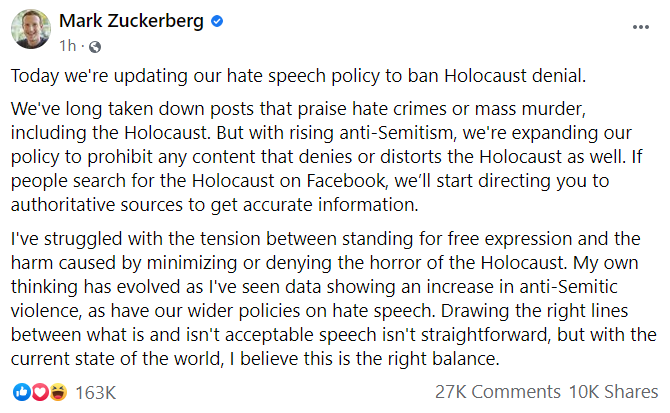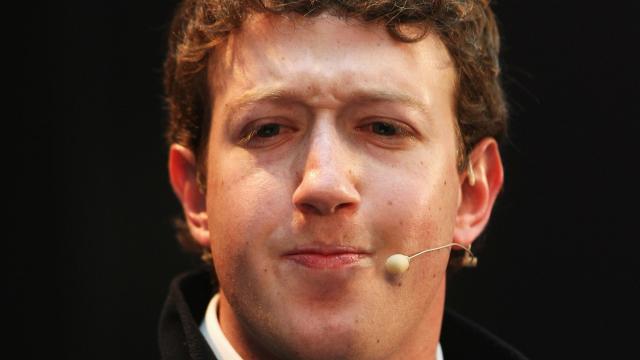By 2009, Facebook had established its first content moderation team known internally as the “porn cops.” The responsibility of hunting down posts containing spam and porn fell to a team of 150 entry-level workers. Four years later, it was paying contractors in countries like Turkey, Mexico, and India $US1 ($1.40) an hour to scan for illicit content.
A decade after launching its crusade against lactating mums, “camel toes,” and gay men frenching, Facebook said on Monday it’s content moderators — who in May secured a $US52 ($72) million settlement against the firm — are now gearing up for a bigger challenge: propaganda that seeks to erase from our history books the genocide of 6 million Jews.
“Today’s announcement marks another step in our effort to fight hate on our services. Our decision is supported by the well-documented rise in anti-Semitism globally and the alarming level of ignorance about the Holocaust, especially among young people,” Facebook said in a statement.
That it took Facebook so long to address Holocaust denial is not an oversight. Billionaire and CEO Mark Zuckerberg, whose origin story is that of a horny college kid who got a kick out of violating women’s privacy, previously defended the neo-Nazis spreading Holocaust denial on his site.
Holocaust deniers falsely claim the Nazis did not systemically murder 6 million Jews during World War II. The Holocaust is, in fact, the best-documented genocide in history. Deniers include members and supporters of far-right organisations that downplay anti-Semitic hate crimes and promote conspiracies about Jewish people controlling governments and media.
In early October 2018, Zuckerberg told Recode that he didn’t believe people who deny the Holocaust are “intentionally getting it wrong.”
“I just think, as abhorrent as some of those examples are, I think the reality is also that I get things wrong when I speak publicly,” he continued. “I’m sure you do. I’m sure a lot of leaders and public figures we respect do too, and I just don’t think that it is the right thing to say, ‘We’re going to take someone off the platform if they get things wrong, even multiple times.’”
That same month, 11 Jews were gunned down at a Pittsburgh synagogue by a man with an AR-15 semi-automatic rifle. “I just want to kill Jews,” the shooter told police.
That was two years ago.
“We’ve long taken down posts that praise hate crimes or mass murder, including the Holocaust,” Zuckerberg, whose website helped foster a genocide in Myanmar in 2017, said in a Facebook post this morning. “But with rising anti-Semitism, we’re expanding our policy to prohibit any content that denies or distorts the Holocaust as well.”

Added Zuckerberg: “I’ve struggled with the tension between standing for free expression and the harm caused by minimising or denying the horror of the Holocaust. My own thinking has evolved as I’ve seen data showing an increase in anti-Semitic violence, as have our wider policies on hate speech.”
Nearly two-thirds of American millennials and zoomers are unaware that 6 million Jews were killed in the Holocaust, according to a survey conducted this year.
It is unclear how effective Facebook’s ban on Holocaust denial will be. Facebook claimed in March 2019 that it was banning posts supporting white-nationalism on the platform. A study by the Anti-Defamation League this summer showed, however, that such content is still widely promoted by the site.
